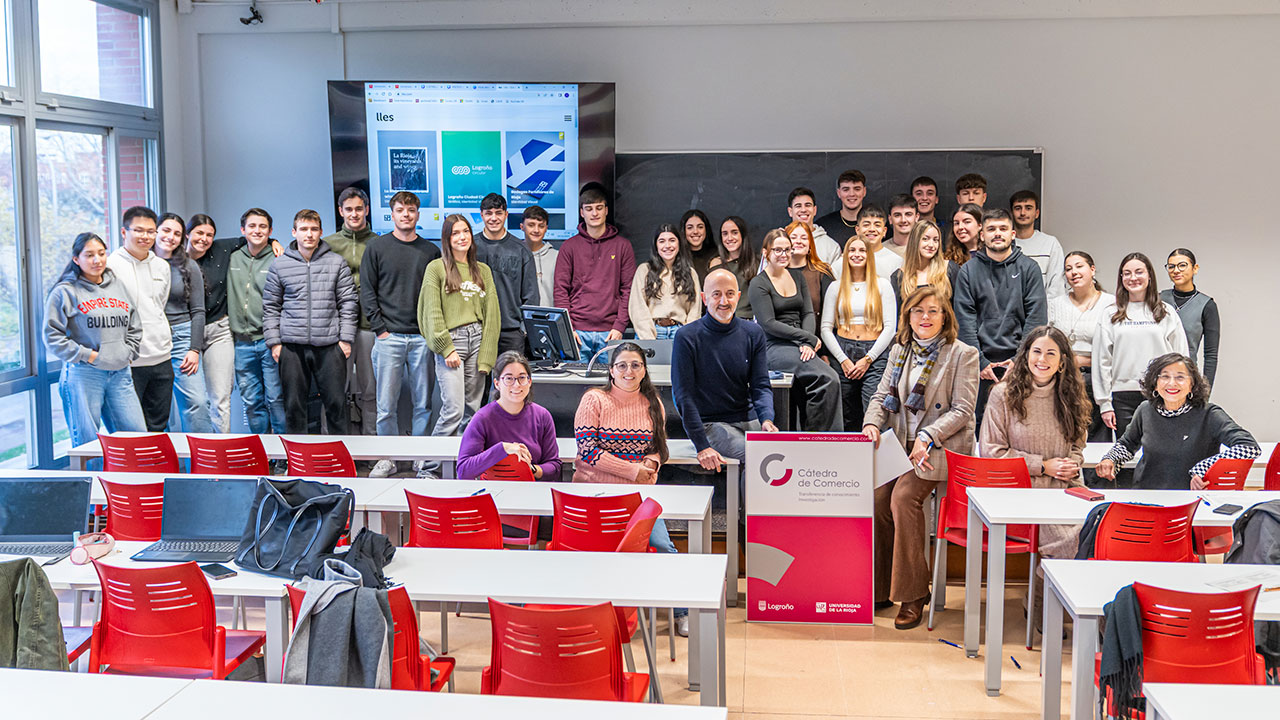Programme
9.30 horas
Welcoming Speech
Dr. Jiménez Catalán
Professor Emeritus of the English Philology Department
Dr. Canga Alonso
Director of the English Philology Department
10.00 - 11.00 horas
The Universality of Semantic Prototypes in L2/L3 Lexical Availability in Students with Different L1
Speaker 1:
Marjana Šifrar Kalan
University of Ljubljana, Slovenia
This presentation presents the words with the highest index of availability, which are the result of lexical availability achieved by semantic fluency tasks.
The conceptual stability of highly available words in various semantic categories permits to classify these words as semantic prototypes according to the theory of prototype. The aim of this paper is to compare the semantic prototypes in ten semantic categories from different lexical availability studies carried out with students with very different L1: Slovene, Spanish, Finnish, Turkish, Chinese, and English.
The informants who come from different countries and cultures and speak different first languages have demonstrated that human beings share the same or similar categorization and universality of semantic prototypes in their L2 or L3 mental lexicon. The words that function as prototypes and have the highest index of availability are also words that are learned early in childhood and are common in everyday communication.
It has also been confirmed that the vast majority of prototypes are at the basic level, according to prototype theory. On the basis of these results, future research should delve into this same topic, comparing the lexical availability of L2 and L3 heritage learners and verifying if the same prototype universality occurs, if not, further research should be dedicated to the organization of mental lexicon.
BA in Spanish and English, MA and PhD in Teaching Spanish as a Foreign Language is an Associate Professor of Foreign Language Teaching Methodology at the Romance Department of the Faculty of Arts, University of Ljubljana, Slovenia. Her main professional and research fields are teaching/learning vocabulary, lexical availability, learner strategies in language learning, developing oral skills, evaluation of students’ textbooks, foreign language testing, intercultural competence, and foreign language teacher training.
She has held many teacher training workshops at the University of Ljubljana, the National Board of Education, and the National Examination Center of Slovenia. She regularly participates in international conferences and has been a member of many international scientific committees (University of Cordoba, University of La Rioja, University of Belgrade, University of Adam Mickiewicz, among others). She has given lectures at various universities in Spain, Poland, Serbia, and Austria.
For 12 years, she was the president of the National Bachelor Examination Committee for Spanish at the National Examination Center of the Republic of Slovenia. She has written numerous Spanish students’ textbook evaluations for the Ministry of Education. She is also one of the founders of the Slovene Association of Spanish Teachers. She has over 30 years of experience in teaching Spanish and English.
11.00 - 11.30 horas
Coffee break
11.30 a 13.00 horas
Round Table University of La Rioja
Moderator:
María Pilar Agustín Llach
Speakers:
Leah Geoghegan
Lexical Availability in heritage and non-heritage learners: differences between
English and Spanish
Jaqueline Mora Guarín
Representation of semantic prototypes in the EFL L2/L3 heritage learners’ lexical output
Alejandra Montero
Heritage learners' frequency of words in their EFL productive lexicon
Discussion: (20 minutes)
13.00 - 15.30 horas
Lunch break
15.30 - 16.30 horas
Eliciting and measuring L2 metaphoric competence and its relationship to vocabulary knowledge, and language proficiency
Speaker 2:
David O’Reilly
University of York, United Kingdom
In this presentation, I unpack some of the methodological issues that accompany the elicitation and measurement of second language (L2) metaphoric competence and its relationship to vocabulary knowledge and general language proficiency.
In English language teaching, the importance of helping learners become competent with metaphor has been recognised for quite some time. Despite rich theoretical accounts of the kinds of metaphor that learners might encounter and what they might be expected to do with it, there are inherent challenges in developing valid, reliable, and informative measures of second language (L2) metaphoric competence (MC) and in selecting and applying appropriate analytical techniques.
For example, how can we measure a learner’s ability to use simile to help a child understand the surrounding world or to playfully extend the literal sense of an idiom for fun? In the first part of this talk, I discuss several of these challenges and how, depending on the type of instrument/data, techniques such as item, distractor, and reliability analysis can be applied.
In the second part of the talk, I look at substantive findings suggesting that for East Asian learners, vocabulary depth (rather than size) is closely linked to all types of metaphoric competence measured, but especially productive metaphoric competence and metaphor language play, and which point to the centrality of different (but related) types of associative thinking ability in metaphor and language use more generally.
David O’Reilly is Lecturer in Education at the Centre for Advanced Studies in Language Education (CASLE), Department of Education, University of York, UK. His research investigates L1 and L2 metaphoric competence, vocabulary knowledge, language testing/development, and language play. He has also been involved in studies on L1 and L2 grammar processing and Open Research initiatives. David was the RaAM Early Career Research Paper Prize 2021 winner for his article “Eliciting and measuring L2 metaphoric competence: Three decades on from Low (1988)” published in Applied Linguistics.
He regularly presents at international conferences, serves on scientific committees, and is Metaphor and the Social World Review Editor. David lectures on a range of BA, BSc, MA,
and MSc programmes, having previously taught English as a Foreign Language in Serbia. In 2021 he was awarded his institution’s Vice-Chancellor's Teaching Award for his work on e-learning.
16.30 a 18.00 horas
Round Table University of Extremadura
Moderator:
Ana María Piquer Píriz
Speakers:
Alba Martín Ramos
Exploring metaphorical competence in heritage (L3) and non-heritage (L2) learners in EFL
Marta Martín Gilete
Exploring vocabulary depth in EFL writing: Integrating metaphor identification with L2 and L3 (heritage) learner discourse
Rafael Alejo González
Analyzing the validity of a metaphorical competence test in foreign language
contexts with secondary school learners
Discussion: (20 minutes)
Presentation
The members of the HERLEX research group and the research project: Productive vocabulary in EFL L2 and L3 learners in secondary school contexts: cognitive, psycholinguistic, and sociocultural variables (HERPRO) of the University of La Rioja and the University of Extremadura will host the Research on EFL L2 and L3 (heritage) learners’ vocabulary production international seminar on 25th of October, 2024.
This seminar mainly aims (i) to explore the EFL productive vocabulary of L2 and L3 (heritage) learners in a secondary school context from cognitive, psycholinguistic and sociocultural dimensions and (ii) to determine whether semantic prototypes might play a crucial role in L2 and L3 learners’ lexical output through a lexical availability task and (iii) to explore and compare L3 (heritage) vs. L2 learners’ metaphorical competence in the dimension of written production by comparing their success in a metaphorical competence test (O'Reilly 2017) and the metaphor density rates in their written compositions.
Another main objective is to offer students in doctoral programmes and master’s and bachelor’s degrees related to language and education the opportunity to listen to internationally renowned researchers discuss the implications that semantic prototypes and metaphorical competence might have in EFL L2 and L3 learners’ vocabulary production, as well as to listen to a panel of researchers at a round table discussion about the results obtained from the EFL L2 and L3 learners’ lexical output data collection.
Registration
The seminar is free, but registration is required via the following registration form.
For whom
This event is intended for BA, MA, and PhD students, primary and secondary education language teachers, colleagues, and researchers in the fields of foreign language acquisition and learning, linguistics, psycholinguistics, or education.
Organizers
Jaqueline Mora Guarín
& GLAUR Research Group
Grant PID 2022 - 137337NB-C21
Departamento de Filologías Modernas
Universidad de La Rioja
Collaborators
© Imagen destacada de Josefa nDiaz.
Etiquetas
Categorías
Noticias relacionadas
El G-9 distingue los mejores trabajos fin de Grado y Máster en el IV Premio de Estudios de Género
Estudiantes de GADE presentan propuestas creativas para impulsar la nueva herramienta de autodiagnóstico del comercio local
Actividades relacionadas




